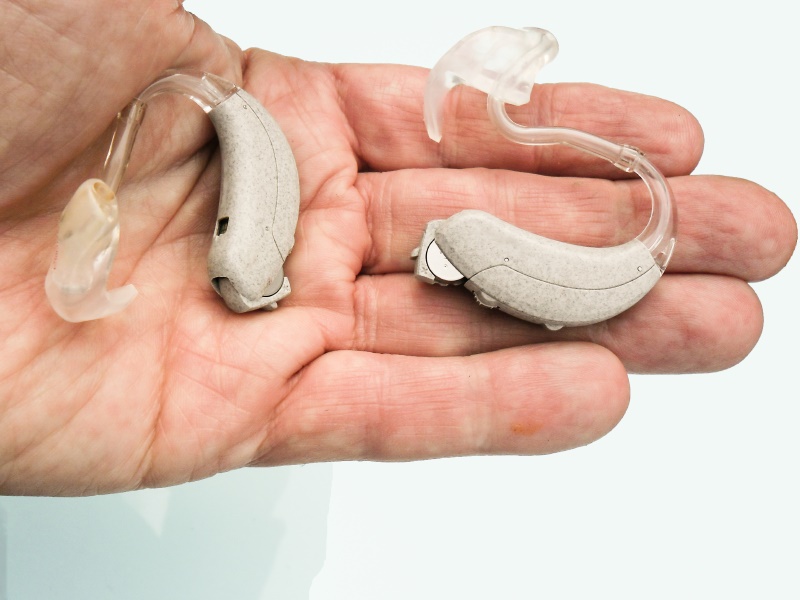
To keep your hearing aids working correctly for years to come, you’ll need to learn about proper care and maintenance. And although it may feel like an additional burden, with the right process your hearing aid care will come to be effortless and automatic.
The secret is establishing productive habits.
If you incorporate your hearing aid care into your daily and nightly routines, before long it won’t feel like any additional work at all.
Here are some tips for the daily care of your hearing aids (which your hearing professional will also review with you):
Clean your hearing aids on a daily basis – Make an effort to include your hearing aid cleansing into your evening routine, so it becomes as automatic as brushing your teeth. Daily cleaning is important because daily hearing aid cleansing can thwart the build-up of earwax, dirt, and dust into the different components of the hearing aid, which can lead to distorted sound over time.
You’ll want to clean your hearing aid with a smooth, dry cloth, while averting any kind of liquids that can destroy the hearing aid electronics. Talk with your hearing specialist for specific guidelines on cleaning each model of hearing aid.
You might also consider purchasing a hearing aid sanitizer, which uses ultraviolet light to safely and completely kill dangerous pathogens. Hearing aid cleaning kits are also available with all of the tools you’ll require to safely and securely clean the device without causing harm to the electronics.
Always check the batteries – Hearing aid batteries should be checked and replaced frequently to assure top hearing aid functionality. Consider using a battery tester in the morning to ensure you have plenty of power for the remainder of the day, and keep a spare set of batteries with you.
Before bedtime, when your hearing aids are not being used, turn them off and store them in a cool, dry spot with the battery door open.
Store your hearing aids in a safe place – In regard to storage, you’ll want to keep in mind three things:
- Keep the hearing aids away from moisture. In other words, storing your hearing aids in the bathroom is probably a bad idea.
- Try to avoid subjecting the hearing aids—and hearing aid batteries—to extremes in temperature. You’ll want to store your hearing aids in a cool, dry place.
- Avoid storing your hearing aids out in the open, where they can become damaged.
We suggest storing your hearing aids in a container or drying kit within the drawer of a bedroom side-table. This will safeguard the hearing aids from dampness, temperature extremes, and damage from being knocked off the table.
In addition, always remove your hearing aids prior to showering, swimming, or using a hair dryer or hair spray.
Maintain ear hygiene – Even though earwax has several helpful characteristics, like protection and lubrication of the ear canal, it can wreak havoc on hearing aids. As it gets wedged within the hearing aid hardware, sound can become distorted.
Make sure you’re keeping up proper ear hygiene, and if you have too much earwax, consider setting up a visit with a professional.
Carefully insert your hearing aids – While inserting your hearing aids, lean over a table or soft surface in the event the hearing aids fall. Hearing aids contain vulnerable electronics, so a fall on a hard surface could bring about significant damage.
Even with scrupulous cleaning and maintenance, over time the hearing aid will call for more thorough cleaning or repair.
To make sure that you continue to achieve the best sound possible, we highly recommend having your hearing aids professionally cleaned by a hearing professional a minimum of twice per year.
Hearing care professionals will render a deep cleaning, a tune-up, and will on occasion replace parts. Staying on top of this regular maintenance will increase the life of your hearing aids and will assure that you get the best sound.







